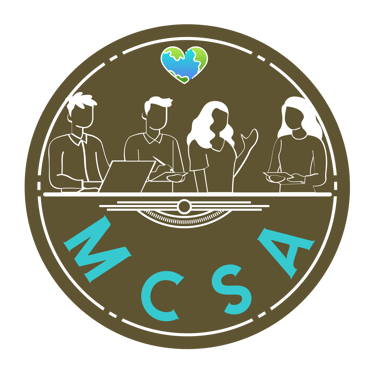
Benefits of citizen science on migrants
Migrants' Citizen Science Association (MCSA) is a timely initiative that harnesses the power of citizen science research to address the challenges faced by migrant populations. By engaging migrants in scientific research, MCSA aims to improve literacy, well-being, and confidence among participants, while also scaling up research with limited financial resources. The inclusive nature of citizen science allows for larger datasets, which can influence policy and decision-making. Through collaboration, MCSA facilitates a better understanding of society and focuses on topics relevant to migrants, ultimately fostering relationships and knowledge exchange between professional scientists and the general public. To get involved in the MCSA's citizen science activities, individuals can sign up as volunteers and become members to contribute to meaningful MCSA endeavors.


In a bigger picture, over the past centuries, scientific research from various fields has brought us myriad conveniences through innovations, as well as extensive knowledge providing us with better understanding of social and environmental processes affecting us in this modern era.
As science continuously evolves, so do societies. Over the last decade, a new trend in the participatory method of inquiry was recorded across different countries where lay people engaged themselves in citizen science research.
The relevance of migrant citizens science at this point in history could not be more timely.
With mass migrations happening worldwide at a faster rate than ever before—and not without consequences to both migrants and the receiving countries—participatory research through citizen science can help mitigate migration issues. We highlight how migrant citizens science can benefit migrant populations and help us to better understand the world.
1. Improves literacy among migrants. Data suggests that participation in scientific research improves literacy among citizen scientists. It also arms them with a deepened understanding of a research subject. There is also some evidence suggesting that participation in scientific research helps improve well-being and confidence among participants. This effect is even more heightened among migrants once they feel integrated into the new environment and culture.
2. Scale up research with less financial resources. Let’s face it, scientific experiments can be costly. However, collaborative and participatory science allows experiments and explorations to run at scale and on a long-term basis, with relatively little capital. In most cases, and such is the purpose for establishing MCSA, citizen science initiatives are of voluntary nature.
3. Influence policy and decision-making. The more inclusive a research is, the larger the datasets will be. With proper measurements and techniques, as in citizen science research supervised by professional scientists, larger datasets obtained by citizen scientists can be imminently suitable for regulatory purposes.
4. Better understanding of society. Diversity in participatory research allows scientists and knowledge institutions who are supervising the research to acquire deeper insights and, therefore, a better understanding of current social issues affecting migrants.
5. Focus on topics relevant to migrants. The diverse issues affecting migrants—such as those relating to the economy, transculturation, public health, and effects on existing social institutions—are not only just issues besetting migrants but have bearings on the national context as well. Migrant citizens science can aid in addressing the needs of migrant populations so that receiving countries can adapt to the demands accordingly.
6. Fosters relationships and knowledge exchange. An added value is when professional scientists and lay people conduct research together. Contributive and participatory research fosters community building and facilitates exchanging of knowledge between the research supervisors and the general public. This not only makes scientists better citizens as they acquire diverse exposures but is also beneficial to the citizens in many ways, such as the aforementioned.
Get involved in migrant citizen science
MCSA will soon hold activities and events in different countries all over Europe, but first, we need volunteers to sign up for our programs. If you would like to receive more information about our organization, please follow us on social media via the links below. If you want to participate in future citizen science research, you can become a member by filling out this form here.
Sources:
https://magazine.scienceconnected.org/2018/09/citizen-science-important-tool/
https://www.nature.com/articles/s41599-020-0471-y
https://magazines.rivm.nl/en/2018/10/citizen-science/10-benefits-citizen-science

